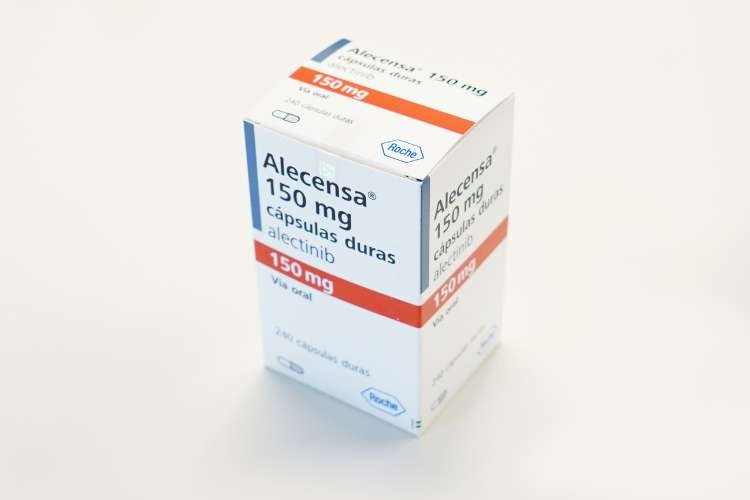With Tecentriq approval, Roche is once again celebrating success, this time in a promising early-stage lung cancer trial starring Alecensa, its targeted therapy.
Alecensa, when pitted against chemotherapy, has demonstrated a remarkable reduction in the risk of tumor recurrence or mortality when administered post-surgery to select non-small cell lung cancer (NSCLC) patients, according to Roche’s Friday announcement. These patients exhibited ALK-positive tumors at stages 1b to 3a, all surgically removed before embarking on their Alecensa journey.
The commendable outcome, emerging from the ALINA trial, propels Alecensa into the limelight as the first ALK inhibitor to unveil its prowess in early-stage NSCLC through a phase 3 clinical trial—a milestone worth its weight in gold, as highlighted by Roche.
While the precise data on patient survival remains in its nascent stages, Roche is gearing up to submit these findings to the FDA and the European Medicines Agency, in a bid to potentially expand Alecensa’s label.
“Alecensa has transformed outcomes for people with advanced ALK-positive NSCLC, and now these strong results provide evidence for the first time that this medicine could also play a pivotal role in early-stage disease where there is significant unmet need. If approved, Alecensa has the potential to treat cancer before it has spread in a setting where treatment can increase the chances of cure, which is our ultimate goal at Roche. We look forward to sharing these data with regulatory authorities in hopes of bringing this to patients as quickly as possible.”
– Levi Garraway, M.D., Ph.D., Roche’s Chief Medical Officer and Head of Global Product Development
Before Alecensa’s stellar performance in the adjuvant treatment arena, Roche’s Tecentriq, when coupled with chemotherapy, secured its place in history as the first PD-1/L1 class medication to secure FDA approval for post-surgery NSCLC treatment in 2021. However, this accolade was confined to PD-L1-positive stage 2 to 3a NSCLC cases.
In January, Merck & Co.’s Keytruda followed suit with a broader approval, encompassing stage 1b to 3a disease, irrespective of the tumor’s PD-L1 expression status.
In the realm of metastatic NSCLC, physicians traditionally lean towards targeted therapies, rather than immunotherapy, especially when the tumor bears a targetable biomarker such as ALK or EGFR abnormalities.
Related: Tecentriq SC A Swift Leap Forward In Cancer Treatment Receives Green Light
In a significant development, back in December 2020, AstraZeneca’s Tagrisso earned the FDA’s approval for treating early-stage EGFR-mutated NSCLC post-surgery. Later, updated results from the pivotal phase 3 ADAURA trial, unveiled in June, underscored the life-saving potential of adjuvant Tagrisso, reducing the risk of death by a staggering 51% compared to a placebo.
It’s worth noting that ALK-positive patients constitute a relatively small subgroup within the NSCLC landscape, accounting for roughly 5% of the total cases. Meanwhile, the market hosts a variety of ALK inhibitors, including Pfizer’s Xalkori, a first-generation offering, and the third-generation Lorbrena.
Alecensa, alongside Novartis’ Zykadia and Takeda’s Alunbrig, belongs to the second-generation class of these inhibitors. In the past year, Xalkori’s sales witnessed a 6% decline, amounting to $465 million, whereas Lorbrena’s sales soared by an impressive 29%, reaching $343 million. For Roche, Alecensa proved its worth by generating CHF 1.5 billion ($1.7 billion) last year, marking a substantial 15% growth at constant currencies compared to 2021. Takeda’s Alunbrig, on the other hand, contributed JPY 20.6 billion ($142 million) for the 12-month period ending in March, reflecting a remarkable 51% year-over-year surge.
Delving into clinical trials, a search on clinicaltrials.gov reveals that Roche stands alone among its peers in conducting testing of its ALK inhibitor in the adjuvant treatment setting, marking a significant stride in advancing cancer care.





























